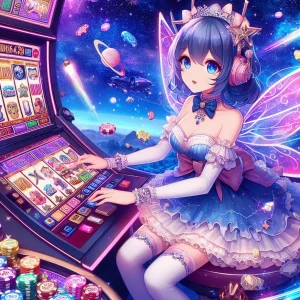In recent years, online gaming has evolved from a niche hobby to a global phenomenon, captivating millions of players worldwide. The rise of high-speed internet, advanced gaming technology, and the proliferation of gaming platforms have contributed to the exponential growth of this industry. From casual mobile games to competitive eSports tournaments, online gaming offers a diverse range of experiences that cater to players of all ages and interests.
One of the most appealing aspects of online gaming is its accessibility. Unlike traditional gaming, which often requires expensive consoles or gaming HOTBET77 PCs, online games can be played on various devices, including smartphones, tablets, and laptops. This accessibility has democratized gaming, allowing people from all walks of life to participate and connect with others in virtual worlds.
Furthermore, online gaming fosters social interaction and community building. Many games feature multiplayer modes where players can collaborate with friends or compete against strangers from around the world. These interactions can lead to lasting friendships and provide a sense of belonging within gaming communities. Online forums, social media groups, and streaming platforms further facilitate communication and engagement among players, creating a vibrant ecosystem around popular games.
However, online gaming is not without its challenges. One of the most pressing issues is the prevalence of toxic behavior and harassment within gaming communities. The anonymity of online platforms can embolden some individuals to engage in offensive or abusive conduct, creating hostile environments for other players, particularly women and marginalized groups. Game developers and platform operators are increasingly implementing measures to combat toxicity, such as chat filters, reporting systems, and moderation tools, but addressing this issue remains an ongoing effort.
Another concern is the potential negative impact of excessive gaming on mental health and well-being. While moderate gaming can be a source of enjoyment and relaxation, excessive gaming habits can lead to addiction, social isolation, and other psychological issues. Parents, educators, and mental health professionals are encouraged to promote responsible gaming habits and provide support for individuals struggling with gaming addiction.
Despite these challenges, the popularity of online gaming continues to soar, driven by advancements in technology and the allure of immersive virtual experiences. From massively multiplayer online role-playing games (MMORPGs) to battle royale shooters, online gaming offers something for everyone, whether they seek epic adventures, strategic challenges, or casual entertainment.
Moreover, online gaming has become a lucrative industry, with professional eSports teams competing for millions of dollars in prize money and sponsorship deals. Major gaming events, such as the League of Legends World Championship and The International Dota 2 Championships, attract millions of viewers worldwide, further solidifying gaming as a legitimate form of entertainment and competition.
In conclusion, online gaming has revolutionized the way people play, connect, and compete in the digital age. While it presents challenges such as toxic behavior and gaming addiction, its positive aspects, including accessibility, social interaction, and economic opportunities, cannot be overlooked. As technology continues to advance, the future of online gaming promises even more innovation and excitement for players everywhere.…





